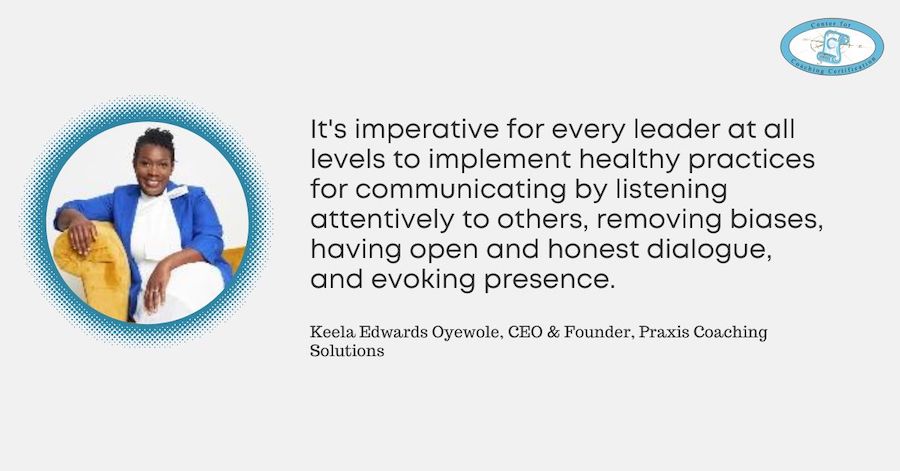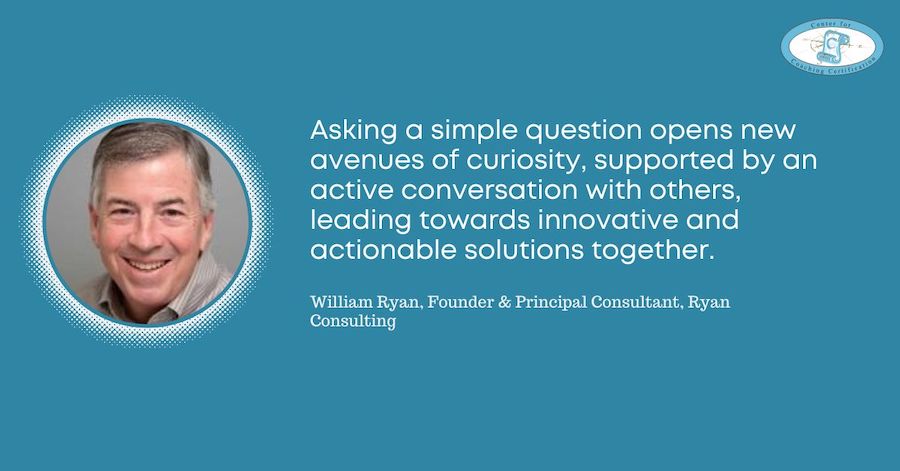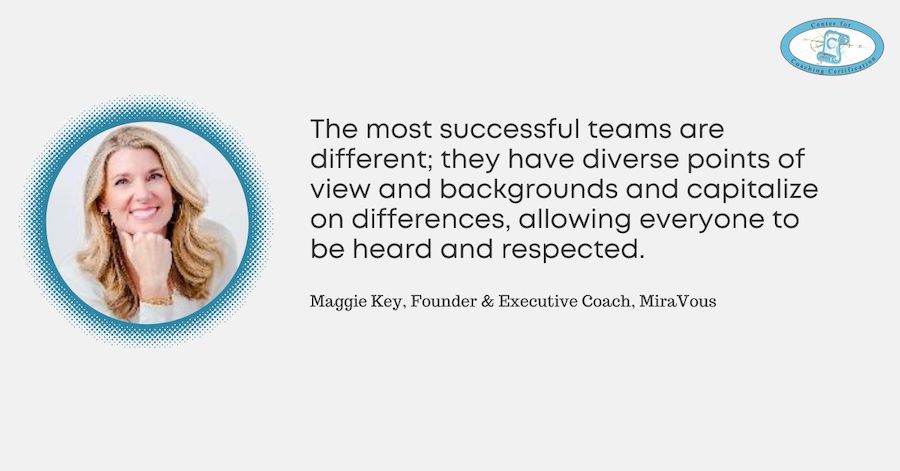
From helping you seem relatable to growing credibility, here are 15 answers to the question, “Can you provide your best reasons communication skills affect the workplace?”
Provides Relatability
Affects Your Teamwork
Establishes Foundation for Collaboration
Stimulates Effective Collaboration
Reduces Penalties From Miscommunication
Prevents Workplace Chaos
Fosters Great Work Cultures
Creates Conversant Communities
Builds Trust, Eliminates Misinterpretation
Promotes Inclusivity at Work
Ensures Talent Retention
Garners Support With Storytelling
Promotes Clarity
Inspires Innovation
Boosts Credibility
Provides Relatability
You may have the best product, reasoning, open position, service, offer, company, experience in the industry, or any other important qualifier, but if you can’t connect what you represent with what motivates someone to engage with you, it won’t matter.
Great communicators connect the value of what they are selling with the individual “whys” of their constituents. Great communicators are self-aware and intuitive. In every arena, they build and practice these skills.
They can self-regulate their thoughts and behaviors, have an executive presence, and have a natural curiosity for people. They believe in themselves while having the humility not to have to be right.
- Mary Lee Gannon, ACC, CAE, President, MaryLeeGannon.com
Affects Your Teamwork
Communication affects everything and everyone in the workplace because it is an essential part of the day and truly reflects whether teams are working.
It’s imperative for every leader at all levels to implement healthy practices for communicating by listening attentively to others, removing biases, having open and honest dialogue, and evoking presence.
Communication affects not only the communicator but the team. In my line of work as a Project Manager and ADHD Productivity Coach, knowing your audience and when to speak, present ideas, remove blockers, and create collaboratively involves a great deal of utilizing communication skills. No matter what the issue, task, or project is, we must all value the experience and journey of others when communicating. Communication is key!
- Keela Edwards Oyewole, CEO & Founder, Praxis Coaching Solutions

Establishes Foundation for Collaboration
Communication skills affect the workplace because they are the foundation of a common understanding. All collaborative work requires a common understanding of intent, meaning, and expectations. Miscommunication can lead to conflict, dissatisfaction, frustration, and even resignation.
Compare communication skills to speaking in a foreign language to someone. If they only understand part of the message, their interpretation, and consequent actions, could be totally off. More than ever, to survive and thrive in a globally diverse working world, excellent communication skills are non-negotiable.
- Ellen Kocher, Workplace Wellness Consultant & Coach, Whealthness
Stimulates Effective Cooperation
Communication is the heart and soul of conversation. Willingly engaging with other people, sharing diverse ideas, and fostering teamwork and collaboration, enable the co-creation of desirable outcomes that benefit all.
Even the resolution of interpersonal friction and conflicts is possible through clear and assertive communication. In a highly interconnected world, where the actions of one group of people may affect the lives of many others in faraway lands, the importance of effective communication cannot be overemphasized. Effective communication skills, therefore, impact every workplace in the world wholesomely!
- Bharat Wakhlu, Founder & President, The Wakhlu Advisory
Reduces Penalties From Miscommunication
It’s common that up to 50% of human communication is miscommunication. This comment jumped off the page of a book I was reading years ago; I can’t remember the book or the author, but I can’t forget the concept, because it is true.
One of the most important things we can do in the workplace is to make sure that we really understand others and that they understand us. You may need to help them by asking clarification questions to make sure that you understand, or you may need to ask the hearer to rephrase what you said to show that they understood your message. Otherwise, we will spend too much time (and in business, wasting too much money) putting out unnecessary “fires” from tasks not being done right, projects going awry, deadlines missed, customers not getting what they need, and workers upset with office drama.
Don’t let 50% of your messages get hijacked. Clear communication that everyone understands precedes productivity and profitability.
- Jeffrey Dorman, Leadership Developer, Breakthrough Coaching, Training, & Consulting
Prevents Workplace Chaos
You may have seen it: details slipping through the cracks, teams unable to work together, dedicated staff being overlooked for promotion, administrative contributions going unrecognized, and a management team without a cohesive strategy for achieving its objectives. This is a workplace in chaos. The problem and the solution are the same: communication.
- Crystal Wright, Business Coach, Mentor, Author, & Speaker, Crystal Wright
Fosters Great Work Cultures
Communication is 75% internal and 25% external. Your thoughts, feelings, and emotions within yourself determine how effectively you communicate. The more mastery you have over your internal world of communication, the more kindness, empathy, and love you can bring to the surrounding people, thus creating healthy, dynamic, and enjoyable work cultures.
- Aditya Guthey, Speaker & Coach, Whoweare Llc
Creates Conversant Communities
We face challenges to improve performance and productivity and bringing the conversation back to asking “why” has proven to be invaluable to me. It brings people together to examine, question, and consider changes. It creates the space where we communicate in the flow of work and as a social process, broadening and building the connections that create teams. Asking a simple question opens new avenues of curiosity, supported by an active conversation with others, leading towards innovative and actionable solutions together.
- William Ryan, Founder & Principal Consultant, Ryan Consulting

Builds Trust, Eliminates Misinterpretation
People interpret what others say based on their level of trust in them. If solid trust has not yet been established, it’s important to take the extra step of sharing your intention and purpose before asking anything of them. By explaining your intention up front, you’ve helped eliminate unnecessary confusion, where the other person may create an inaccurate version anyway. This made-up version can further the divide between you two and any consulted allies and prevent any trust from being established or rebuilt in the future.
- Angela Karnes Padron, Owner, Organizational Psychologist, Olympus Strategies
Promotes Inclusivity at Work
Effective communication in the workplace is important for promoting diversity, equity, and inclusion, as it creates a more inclusive, harmonious, and productive environment. When employees can clearly convey their ideas and concerns, considering intersectionality across the organization, it leads to better decision-making, faster problem-solving, and improved collaboration.
Miscommunication because of language or cultural barriers leads to low morale and poor job satisfaction. To promote diversity, equity, and inclusion, use these two critical aspects of active listening:
- pay attention to non-verbal cues (facial expressions, body language, voice tone, etc.), and
- avoid interrupting to allow the other person to fully express their thoughts.
Implementing these two strategies increases understanding and empathetic responses; otherwise, we focus on communicating our views clearly without truly grasping how our words impact others.
Ensures Talent Retention
Effective communication skills in the workplace are essential for talent retention. Too much talent is lost because managers communicate poorly and forget the importance of soft skills.
For example, managers who are too focused on the technical aspects of a project and don’t check in enough with their team to see how they’re getting on will find the best employees becoming demotivated and even quitting.
When someone works hard and doesn’t feel valued enough, they’ll eventually lose motivation and look for a company that values their talent more. Therefore, effective communication is fundamental for not only inspiring but also keeping employees.
- Marie Stephenson, Executive Coach, Stephenson Coaching
Garners Support With Storytelling
If you’ve ever had an outstanding idea only to be met with groans, eye rolls, and general resistance, it can be incredibly disheartening. But don’t lose hope—the key to unlocking enthusiastic support lies in storytelling!
Considered THE most essential communication skill for modern workplaces, storytelling has the power to convert skeptics into supporters when done correctly. After all, storytelling is about igniting emotions—it gives us a chance to connect with an idea through feelings rather than facts. So if you want to make sure your great ideas get the recognition they deserve in the workplace, start honing those storytelling abilities now!
- Mark Cruth, Modern Work Designer, Atlassian
Encourages Clarity
Effective communication is essential in the workplace because it creates clarity. In the absence of clarity, time is wasted, mistakes are made, frustration builds, and trust erodes.
Furthermore, it is the current level of clarity around purpose, goals, roles, timelines, authority, and accountability that drives results—for better or worse. Although a small percentage of individuals may thrive in ambiguity for a while, that period is limited, and organizations cannot.
- Karen Pelot, CEO, Perspectives, LLC
Inspires Innovation
To work successfully together as a team, it’s critical to understand and communicate effectively. Without a high investment in communication skills, even the strongest team of individuals will fall to the lowest level of commonality.
The most successful teams are different; they have diverse points of view and backgrounds and capitalize on differences, allowing everyone to be heard and respected. These organizations adopt higher levels of communication skills to create the clarity needed to inspire innovation and new ideas, resulting in a thriving culture and business.
- Maggie Key, Founder & Executive Coach, MiraVous

Boosts Credibility
Effective communication skills positively impact both employer and employee credibility in the workplace. Through consistent and effective communication, employers are better able to take employee needs into consideration as they focus on goals and objectives.
This improves the employer-employee relationship and builds trust at various levels, which ultimately boosts the employer’s credibility in the eyes of the employee. Employees become more effective and agile using appropriate communication skills as they interact and problem-solve in different workplace scenarios. This also boosts their credibility in the eyes of other employees and the organization.Tolu Okudolo, MBA, B.Ed , Communication Coach, Magnifying Horizons





